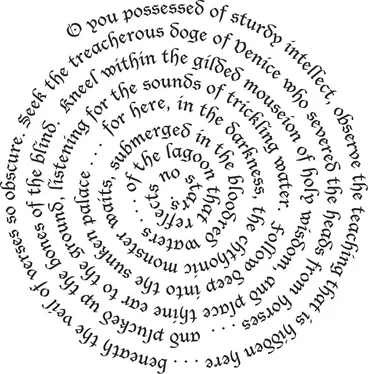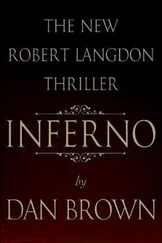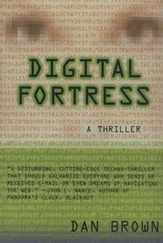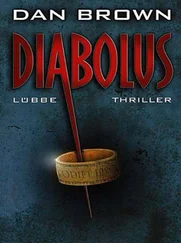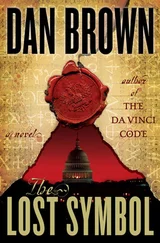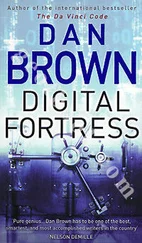Dan Brown - Inferno - A Novel
Здесь есть возможность читать онлайн «Dan Brown - Inferno - A Novel» весь текст электронной книги совершенно бесплатно (целиком полную версию без сокращений). В некоторых случаях можно слушать аудио, скачать через торрент в формате fb2 и присутствует краткое содержание. Год выпуска: 2013, ISBN: 2013, Издательство: Doubleday, Жанр: Старинная литература, на английском языке. Описание произведения, (предисловие) а так же отзывы посетителей доступны на портале библиотеки ЛибКат.
- Название:Inferno: A Novel
- Автор:
- Издательство:Doubleday
- Жанр:
- Год:2013
- ISBN:978-0-385-53786-5
- Рейтинг книги:4 / 5. Голосов: 1
-
Избранное:Добавить в избранное
- Отзывы:
-
Ваша оценка:
- 80
- 1
- 2
- 3
- 4
- 5
Inferno: A Novel: краткое содержание, описание и аннотация
Предлагаем к чтению аннотацию, описание, краткое содержание или предисловие (зависит от того, что написал сам автор книги «Inferno: A Novel»). Если вы не нашли необходимую информацию о книге — напишите в комментариях, мы постараемся отыскать её.
Inferno: A Novel — читать онлайн бесплатно полную книгу (весь текст) целиком
Ниже представлен текст книги, разбитый по страницам. Система сохранения места последней прочитанной страницы, позволяет с удобством читать онлайн бесплатно книгу «Inferno: A Novel», без необходимости каждый раз заново искать на чём Вы остановились. Поставьте закладку, и сможете в любой момент перейти на страницу, на которой закончили чтение.
Интервал:
Закладка:
Mirsat managed a weak nod. “Okay.”
“Here at Dandolo’s tomb, we can hear a rivulet of water flowing somewhere under the stone. We need to know where this water flows.”
Mirsat shook his head. “I don’t understand. Water can be heard beneath the floors everywhere in Hagia Sophia.”
Everyone stiffened.
“Yes,” Mirsat told them, “especially when it rains. Hagia Sophia has approximately one hundred thousand square feet of rooftops that need to drain, and it often takes days. And usually it rains again before the drainage is complete. The sounds of trickling water are quite common here. Perhaps you are aware that Hagia Sofia sits on vast caverns of water. There was a documentary even, which—”
“Yes, yes,” Langdon said, “but do you know if the water that is audible here at Dandolo’s tomb flows somewhere specific ?”
“Of course,” Mirsat said. “It flows to the same place that all the water shedding from Hagia Sophia flows. To the city cistern.”
“No,” Brüder declared, stepping back over the stanchion. “We’re not looking for a cistern. We’re looking for a large, underground space, perhaps with columns?”
“Yes,” Mirsat said. “The city’s ancient cistern is precisely that—a large underground space with columns. Quite impressive actually. It was built in the sixth century to house the city’s water supply. Nowadays it contains only about four feet of water, but—”
“Where is it!” Brüder demanded, his voice echoing across the empty hall.
“The … cistern?” Mirsat asked, looking frightened. “It’s a block away, just east of this building.” He pointed outside. “It’s called Yerebatan Sarayi.”
Sarayi? Langdon wondered. As in Topkapi Sarayi? Signage for the Topkapi Palace had been ubiquitous as they were driving in. “But … doesn’t sarayi mean ‘palace’?”
Mirsat nodded. “Yes. The name of our ancient cistern is Yerebatan Sarayi. It means —the sunken palace .”
CHAPTER 90
The rain was falling in sheets as Dr. Elizabeth Sinskey burst out of Hagia Sophia with Langdon, Brüder, and their bewildered guide, Mirsat.
Follow deep into the sunken palace , Sinskey thought.
The site of the city’s cistern—Yerebatan Sarayi—was apparently back toward the Blue Mosque and a bit to the north.
Mirsat led the way.
Sinskey had seen no other option but to tell Mirsat who they were and that they were racing to thwart a possible health crisis within the sunken palace.
“This way!” Mirsat called, leading them across the darkened park. The mountain of Hagia Sophia was behind them now, and the fairy-tale spires of the Blue Mosque glistened ahead.
Hurrying beside Sinskey, Agent Brüder was shouting into his phone, updating the SRS team and ordering them to rendezvous at the cistern’s entrance. “It sounds like Zobrist is targeting the city’s water supply,” Brüder said, breathless. “I’m going to need schematics of all conduits in and out of the cistern. We’ll run full isolation and containment protocols. We’ll need physical and chemical barriers along with vacuum—”
“Wait,” Mirsat called over to him. “You misunderstood me. The cistern is not the city water supply. Not anymore!”
Brüder lowered his phone, glaring at their guide. “What?”
“In ancient times, the cistern held the water supply,” Mirsat clarified. “But no longer. We modernized.”
Brüder came to a stop under a sheltering tree, and everyone halted with him.
“Mirsat,” Sinskey said, “you’re sure that nobody drinks the water out of the cistern?”
“Heavens no,” Mirsat said. “The water pretty much just sits there … eventually filtering down into the earth.”
Sinskey, Langdon, and Brüder all exchanged uncertain looks. Sinskey didn’t know whether to feel relieved or alarmed. If nobody comes in regular contact with the water, why would Zobrist choose to contaminate it?
“When we modernized our water supply decades ago,” Mirsat explained, “the cistern fell out of use and became just a big pond in an underground room.” He shrugged. “These days it’s nothing more than a tourist attraction.”
Sinskey spun toward Mirsat. A tourist attraction? “Hold on … people can go down there? Into the cistern?”
“Of course,” he said. “Many thousands visit every day. The cavern is quite striking. There are boardwalks over the water … and even a small café. There’s limited ventilation, so the air is quite stuffy and humid, but it’s still very popular.”
Sinskey’s eyes locked on Brüder, and she could tell that she and the trained SRS agent were picturing the same thing—a dark, humid cavern filled with stagnant water in which a pathogen was incubating. Completing the nightmare was the presence of boardwalks over which tourists moved all day long, just above the water’s surface.
“He created a bioaerosol,” Brüder declared.
Sinskey nodded, slumping.
“Meaning?” Langdon demanded.
“Meaning,” Brüder replied, “that it can go airborne .”
Langdon fell silent, and Sinskey could see that he was now grasping the potential magnitude of this crisis.
An airborne pathogen had been on Sinskey’s mind as a possible scenario for some time, and yet when she believed that the cistern was the city’s water supply, she had hoped maybe this meant that Zobrist had chosen a water-bound bioform. Water-dwelling bacteria were robust and weather-resistant, but they were also slow to propagate.
Airborne pathogens spread fast.
Very fast.
“If it’s airborne,” Brüder said, “it’s probably viral.”
A virus , Sinskey agreed. The fastest-spreading pathogen Zobrist could choose .
Releasing an airborne virus underwater was admittedly unusual, and yet there were many life-forms that incubated in liquid and then hatched into the air—mosquitoes, mold spores, the bacterium that caused Legionnaires’ disease, mycotoxins, red tide, even human beings. Sinskey grimly pictured the virus permeating the cistern’s lagoon … and then the infected microdroplets rising into the damp air.
Mirsat was now staring across a traffic-jammed street with a look of apprehension on his face. Sinskey followed his gaze to a squat, red-and-white brick building whose single door was open, revealing what looked to be a stairwell. A scattering of well-dressed people seemed to be waiting outside under umbrellas while a doorman controlled the flow of guests who were descending the stairs.
Some kind of underground dance club?
Sinskey saw the gold lettering on the building and felt a sudden tightness in her chest. Unless this club was called the Cistern and had been built in A.D. 523, she realized why Mirsat was looking so concerned.
“The sunken palace,” Mirsat stammered. “It seems … there is a concert tonight.”
Sinskey was incredulous. “A concert in a cistern?!”
“It’s a large indoor space,” he replied. “It is often used as a cultural center.”
Brüder had apparently heard enough. He dashed toward the building, sidestepping his way through snarled traffic on Alemdar Avenue. Sinskey and the others broke into a run as well, close on the agent’s heels.
When they arrived at the cistern entrance, the doorway was blocked by a handful of concertgoers who were waiting to be let in—a trio of women in burkas, a pair of tourists holding hands, a man in a tuxedo. They were all clustered together in the doorway, trying to keep out of the rain.
Sinskey could hear the melodic strains of a classical music composition lilting up from below. Berlioz , she guessed from the idiosyncratic orchestration, but whatever it was, it felt out of place here in the streets of Istanbul.
Читать дальшеИнтервал:
Закладка:
Похожие книги на «Inferno: A Novel»
Представляем Вашему вниманию похожие книги на «Inferno: A Novel» списком для выбора. Мы отобрали схожую по названию и смыслу литературу в надежде предоставить читателям больше вариантов отыскать новые, интересные, ещё непрочитанные произведения.
Обсуждение, отзывы о книге «Inferno: A Novel» и просто собственные мнения читателей. Оставьте ваши комментарии, напишите, что Вы думаете о произведении, его смысле или главных героях. Укажите что конкретно понравилось, а что нет, и почему Вы так считаете.
